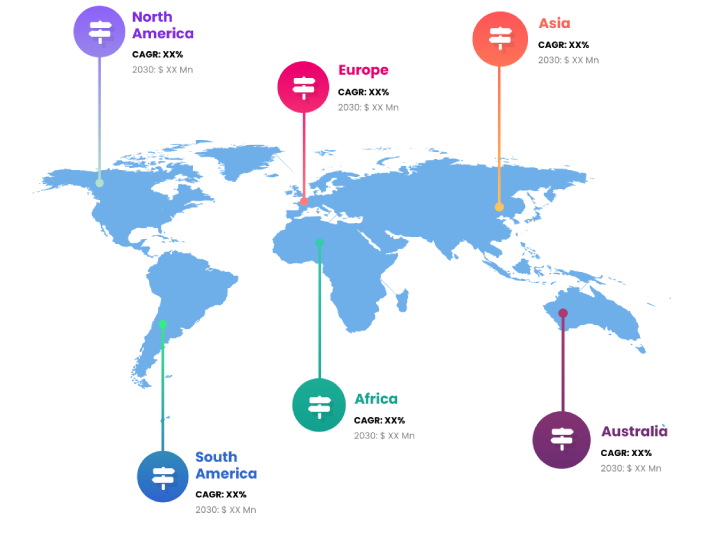The market for tax management is expanding as a result of the spike in demand from businesses for a single tax solution that can assist them in resolving business issues. Businesses are using tax management software more and more because it integrates a wide range of applications, such as sales and billing software, purchases software, accounting and employee payroll systems, and other financial applications.

It can be tailored to meet particular business needs and deployed across corporate networks on a variety of platforms. As businesses expand, they need business-oriented tax management that codifies corporate policies, procedures, and processes and is constructed in accordance with particular business requirements. These solutions can help accountants work more effectively given the developing firm and the increasing number of personnel in the workplace. Additionally, this improves the gathering of financial intelligence, boosts business effectiveness, and enables the accounts manager to track and lower excess tax, which will raise income.
A law amendment is the act of adding to, changing, or removing from a law in an effort to increase its effectiveness. It is anticipated that the updating of tax regulations would present a hurdle to solution providers as they will need to engage tax specialists and upgrade the software of their current users/subscribers. As a result, the solution will cost more and provide less income for the business. To be able to serve these consumers, the solution providers in such situations were forced to make some adjustments to their offers. Consequently, with each change made by governments around the world, solution suppliers encounter a number of difficulties.
Government compliance regulations are becoming more stringent, which has increased the need for tax management software that streamlines the tax calculation and filing process. Additionally, the transition to digital tax processes has increased demand for tax administration software, which has improved process efficiency and reduced error rates. Due to the complexity of tax laws and regulations, businesses are seeking automated solutions to handle their tax operations. Businesses can choose from flexible, scalable, and affordable cloud-based solutions, which has expanded the use of cloud-based tax administration software. The expansion of SMEs has increased the demand for cost-effective and user-friendly tax administration solutions. Small, medium, and large-sized businesses can employ a cloud-based solution to address their tax management-related demands.
Enhanced transparency aids in ensuring compliance and enhancing tax planning. Automation reduces the danger and allows for the system's recording of high-caliber tax information. By standardizing tax compliance procedures, businesses can expand globally, reduce risk, pay taxes on time, and pay less in compliance fees. Eliminating workarounds and offline data reconciliations or manipulations can boost tax management efficiency by boosting transparency for tax audits and automating compliance processes with AI & ML.
Despite being implemented in the majority of developing nations, VAT frequently suffers from being lacking in some way. For business owners, costs have gone up for everything involved in the production process. This is due to the fact that every stage of the sales process requires the calculation of VAT; this places a tremendous load on businesses' bookkeeping, which they subsequently pass on to customers. Many important industries, most notably the service, wholesale, and retail sectors, are either excluded from the VAT net or have very limited credit options. As a result, there are longer delays in the delivery of appropriate credits for input VAT, particularly when it comes to capital goods. These qualities lessen the advantages of establishing VAT in the first place because they permit a significant increase in the tax burden for the final user.
Depending on the deployment strategy, the on-premise category took the lion's share in 2020, and it is anticipated that this trend would continue throughout the projected period. This is because this on-premise implementation has so many benefits, such a high level of data protection and safety, which will fuel future growth in the tax management market. The cloud segment, however, is anticipated to increase at a faster rate in the coming years. Because all data is saved on cloud servers, cloud deployments don't need to invest in IT infrastructure, which raises the demand for tax management software among small and medium-sized businesses.
The study focuses on the market analysis for tax management's growth prospects, challenges, and opportunities. In order to understand the effects of various factors, including bargaining power of suppliers, competitive intensity of competitors, threat of new entrants, threat of substitutes, and bargaining power of buyers on the tax management market trends, the study provides Porter's five forces analysis of the tax management industry.
Report Coverage
Global Tax Management research report categorizes the market for global based on various segments and regions, forecasts revenue growth, and analyzes trends in each submarket. Global Tax Management report analyses the key growth drivers, opportunities, and challenges influencing the global market. Recent market developments and Tax Management competitive strategies such as expansion, product launch and development, partnership, merger, and acquisition have been included to draw the competitive landscape in the market. The report strategically identifies and profiles the key Tax Management market players and analyses their core competencies in each global market sub-segments.
| REPORT ATTRIBUTES | DETAILS |
|---|---|
| Study Period | 2017-2030 |
| Base Year | 2022 |
| Forecast Period | 2022-2030 |
| Historical Period | 2017-2021 |
| Unit | Value (USD Billion) |
| Key Companies Profiled | Thomson Reuters (Canada), Intuit (US), H&R Block (US), Avalara (US), Wolters Kluwer NV (Netherlands), Automatic Data Processing (US), SAP SE (Germany), Blucora (US), Sovos Compliance (US), Vertex (US), Sailotech (US), Defmacro Software (India), DAVO Technologies (US), Xero (New Zealand), TaxSlayer (US), Taxback International (Ireland), TaxCloud (US), Drake Enterprises (US), Canopy Tax (US), TaxJar (US), Webgility (US), LOVAT Software (UK), SafeSend (US), EXEMPTAX (US), Sales Tax DataLINK (US), Shoeboxed (US), and SAXTAX (US). |
| Segments Covered | • By Product |
| Customization Scope | Free report customization (equivalent to up to 3 analyst working days) with purchase. Addition or alteration to country, regional & segment scope |
Key Points Covered in the Report
- Market Revenue of Tax Management Market from 2021 to 2030.
- Market Forecast for Tax Management Market from 2021 to 2030.
- Regional Market Share and Revenue from 2021 to 2030.
- Country Market share within region from 2021 to 2030.
- Key Type and Application Revenue and forecast.
- Company Market Share Analysis, Tax Management competitive scenario, ranking, and detailed company
profiles. - Market driver, restraints, and detailed COVID-19 impact on Tax Management
Market
Competitive Environment:
The research provides an accurate study of the major organisations and companies operating in the global Tax Management market, along with a comparative evaluation based on their product portfolios, corporate summaries, geographic reach, business plans, Tax Management market shares in specific segments, and SWOT analyses. A detailed analysis of the firms' recent news and developments, such as product development, inventions, joint ventures, partnerships, mergers and acquisitions, strategic alliances, and other activities, is also included in the study. This makes it possible to assess the level of market competition as a whole.
List of Major Market Participants
Thomson Reuters (Canada), Intuit (US), H&R Block (US), Avalara (US), Wolters Kluwer NV (Netherlands), Automatic Data Processing (US), SAP SE (Germany), Blucora (US), Sovos Compliance (US), Vertex (US), Sailotech (US), Defmacro Software (India), DAVO Technologies (US), Xero (New Zealand), TaxSlayer (US), Taxback International (Ireland), TaxCloud (US), Drake Enterprises (US), Canopy Tax (US), TaxJar (US), Webgility (US), LOVAT Software (UK), SafeSend (US), EXEMPTAX (US), Sales Tax DataLINK (US), Shoeboxed (US), and SAXTAX (US).
Primary Target Market
- Market Players of Tax Management
- Investors
- End-users
- Government Authorities
- Consulting And Research Firm
- Venture capitalists
- Third-party knowledge providers
- Value-Added Resellers (VARs)
Market Segment:
This study forecasts global, regional, and country revenue from 2019 to 2030. INFINITIVE DATA EXPERT has segmented the global Tax Management market based on the below-mentioned segments:
Global Tax Management Market, By Tax Type
Indirect tax
Direct tax
Global Tax Management market, By Industry Vertical
BFSI
Manufacturing
IT and Telecom
Retail and E-Commerce
Energy and Utility
Healthcare
Media and Entertainment
Others
Global Tax Management Market, By Component
Software
Services
Global Tax Management market, Regional Analysis
- Europe: Germany, Uk, France, Italy, Spain, Russia, Rest of Europe
- The Asia Pacific: China,Japan,India,South Korea,Australia,Rest of Asia Pacific
- South America: Brazil, Argentina, Rest of South America
- Middle East & Africa: UAE, Saudi Arabia, Qatar, South Africa, Rest of Middle East & Africa
You will get in-depth and extensive tax management market market research and competitor analysis for your business to help you develop more profound insights into the tax management market Market.
Through INFINITIVE Data Expert is a professional Market Research services, I will identify the tax management market market size, demand & opportunities, growth rate, and target audience with a comprehensive analysis of your competitors.



